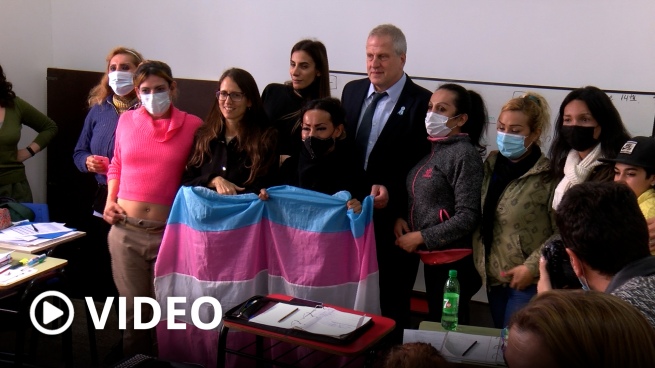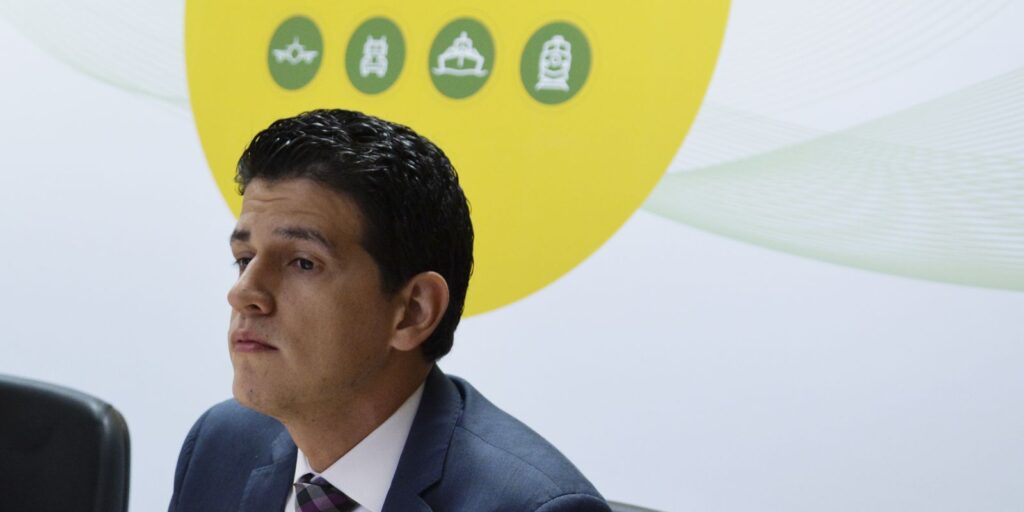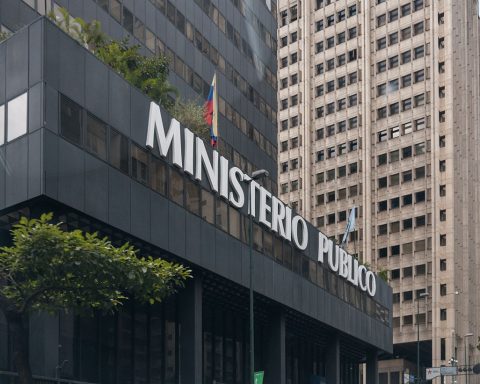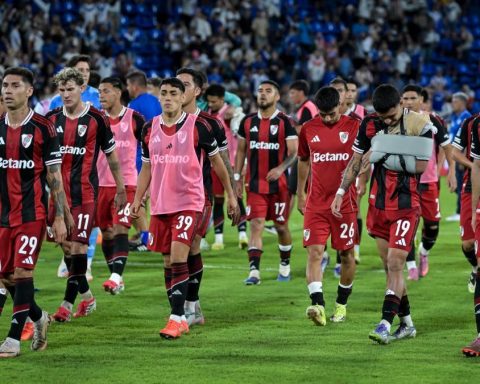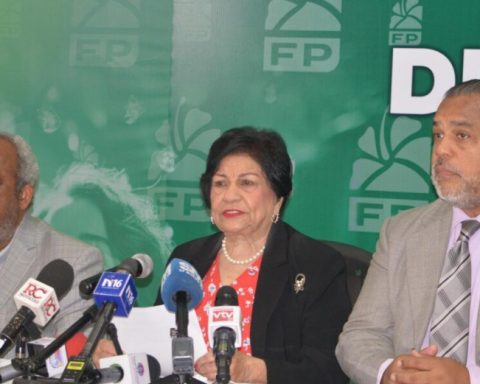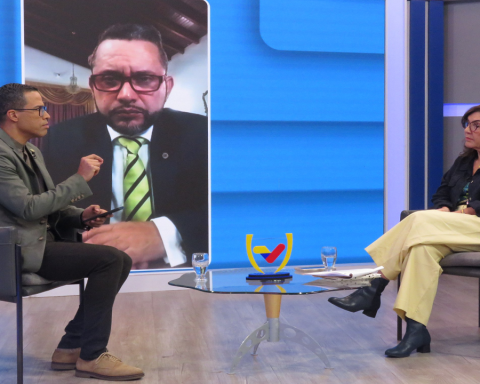Perczyk and Gómez Alcorta inaugurated the Travesti-Trans Mocha Celis Popular Baccalaureate building
WATCH VIDEO
The new building ofl Mocha Celis Travesti-Trans Popular Baccalaureate was inaugurated this Tuesday by the Minister of Education, Jaime Perczykand the Minister of Women, Gender and Diversity, Elizabeth Gomez Alcortawho highlighted the space attended by 300 students as “a place that invites you to education, love, projects and community, where there is affection and commitment”.
Located in the Buenos Aires neighborhood of Balvanera, in the Jujuy Avenue to 748the new headquarters of Mocha Celis (Experimental Educational Management Unit No. 16) provides non-exclusive free education aimed at the transvestite and trans collective, which makes it “a different institution, of inclusive education, which fills us with pride” , sustained Télam Gómez Alcorta.
Space, provided by the national governmenthas three classrooms, a multipurpose room, a dining room, the “Lohana Berkins” library, and genderless bathrooms.
“We have been accompanying Mocha in several of its initiatives and also in the face of a very basic need that they had, which was the lack of a building so that they could function during these years,” said Gómez Alcorta.
In turn, the minister highlighted the work of the Ministry of Education to “set up a building that meets all the needs required by any decent schoolwhich is how we think about education in our country”.

After the tour of the building, the ministers spoke with the students of the three courses, who shared their experiences and projects that they carry out through Mocha, such as the training and job placement courses that they carry out in the Trans Employment program.
“Much of what they tell us is that in the trajectories of their lives they have been excluded from multiple places and the education system is one of those places from which they have been expelledGomez Alcorta pointed out.
For this reason, the minister continued, “regardless of age and circumstances, there is a place that invites you and invites you to education, love, projects, community, that is Mocha, and that is why there is so much affection here and so much commitment from everyone. “.
In turn, he added that “being able to meet her, being in the three courses and chatting was a very beautiful moment, and it implies us redoubling the commitment we have so that there are many more Mochas, not only in the City of Buenos Aires, but in all the country and throughout Latin America”.

Similarly, Minister Perczyk maintained “the commitment to himself, to study and progress” of those who attend Mocha and their teachers and stressed that “that is what makes the school.”
“Years ago the school was created and began to teach and then had a course for not having buildings or infrastructure. And in Argentina education is a right, everyone has the right to study and here is that specification of that rightPerczyk said.
During the talk, one of the students pointed out that at the age of eight, when she began her transition, “she dreamed of being a teacher”, and that after leaving school at the age of eleven, she is finally finishing her secondary education and “fulfilling that dream that he abandoned more than forty years ago”.
Meanwhile, the school -which has already turned 10 years old- tripled its student enrollment as of the Trans Labor Quota Lawwhich led transvestites and trans people to finish their studies, both primary and secondary, to “enter and remain” in the workplace, explained Francisco Quiñones Cuartas, director of the high school.

However, he pointed out, “the proposals at night of the spaces for adults and adolescents did not harbor this possibility, and we feared that enrollment would multiply, which is what finally happened.”
“Where are the trans people going to go to study who have been expelled from the traditional educational system and who, until they got a job, lived as prostitutes or considered themselves sex workers?” asked the director.
For this reason, from La Mocha they began to look for spaces, with several moves in between, until achieving the construction of a definitive space in front of Plaza Once.
Meanwhile, Quiñones Cuartas pointed out, “we are going to be carrying out activities here for years, while we wait for the construction of that building.”

On the other hand, the director referred to the prohibition of the use of inclusive language in the schools of the Autonomous City of Buenos Aires and maintained that “it is impossible to apply under imposition a norm that has a clearly political search.”
And he added that “non-binary language, non-sexist language cannot be held responsible for rudeness and bad answers.”
“We as a school of the City Government, under the area of adults and adolescents, have a lot to tell about the underfunding, the non-accompaniment of a school that has spent more than ten years trying to repair what has been exclusive and violent with different identities. “, he stated.
Finally, Quiñones Cuartas maintained the importance of the space to “demonstrate that there is a lot of population that has a lot of things to offer and that they simply have to have the opportunities.”

